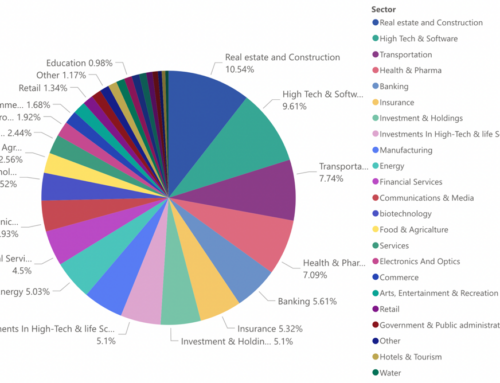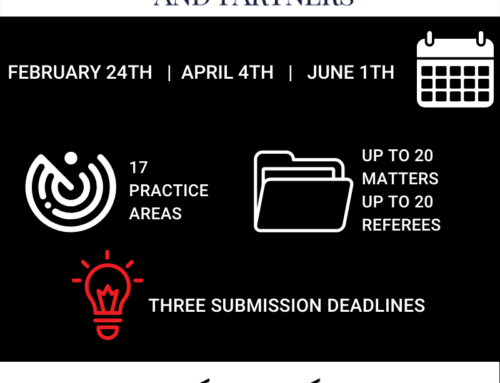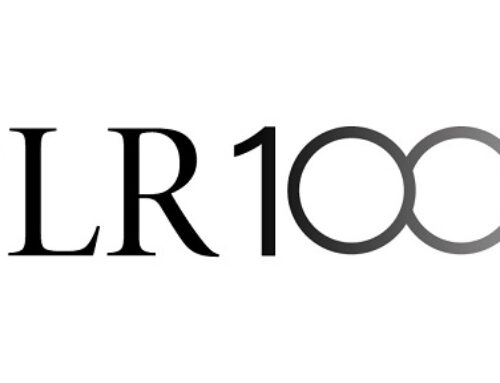EMEA Deadline: August 8, 2022
Editor: Ella Marshall
Submit via a firm’s log in details.
Please find below questions and answers which will help you improve your upcoming Legal 500 submissions:
How important is the submission in the process?
The submission is the most important part of the process and the main source of information for the Legal 500 researchers when they make their assessment of the firm, including ranking decisions. A strong submission is therefore an important factor in any upwards movement in the rankings. A strong submission is a clear one with highlights described clearly and concisely, avoid legal jargon. A strong submission is also one where the strengths and breadth of expertise of the practice are identified clearly and then substantiated by work highlights.
Legal 500 asks for 20 matters. We can do that, but do we get penalised for more than 20 matters?
Legal 500 asks that law firms stick to the number of work highlight limit. Firms that go beyond this are adding to the researchers’ workloads, and therefore likely annoying them somewhat, while also diluting the value of the highlights they provide. Listing more than 20 highlights simply makes it look like a firm listed all of the work it has done recently rather than a representative sample.
You are looking for matters from the last calendar year. Can we also show track record beyond that?
The track record of a firm is a key factor in Legal 500’s ranking decision-making process. They analyse past submissions to ascertain this, however firms are also free to briefly detail their track record in a given area as part of their most recent submission for this area. Please, as always, keep this information clear and concise, it should not take the form of additional detailed work highlights. One good way to showcase track record in an area is to list longstanding client relationships.
Obviously, firms do all they can to meet the deadlines, do you get penalised if we fail to meet the deadline?
With regards to submissions, extensions are generally possible and are given at the discretion of the researcher. If you think you will need one, let us know as soon as possible and we will do our best to accommodate this with Legal 500.
With regards to referees, the deadline is a hard deadline and there are penalties for missing it. Referees submitted up to two weeks after the deadline will only be contacted if they are listed as a referee for just the one firm, this is because we do not want to contact the same referee twice in short succession and so if a firm submits a referee up to two weeks late and that referee was also listed by a firm that submitted on time, we will only contact the referee on behalf of the firm that submitted on time.
Referees submitted more than two weeks after the deadline will generally not be contacted at all.
What is the most important thing to convey to Legal 500?
Number one tip – remember, the Legal 500 is a qualitative analysis of a law firm’s work, it is therefore crucial to communicate clearly in the submissions the complexity and profile of the work done in each practice area.
Client Referees: Are they important? How many should we write down?
Client referees are an integral part of the research, though not mandatory. A firm will not be excluded from a ranking on the basis that referees have not been provided, according to The Legal 500, however feedback – from clients, introducers/referrers of work, and other third parties – is an important element of the information considered by the editorial researchers in assessing rankings and writing accompanying editorial. The average response rate, of referees, is 25 percent and each individual who wants to be considered for the individual tables needs 3-4 referee validations, thus is it advised to submit over 20 referees (there is no limit).
Client Referees: Who make the most useful client referees for you?
Those referees that actually take the time to answer our questions and clearly know the lawyers well, we do not look necessarily at who is answering but rather at what it is they are saying. A good overview spelling out REFEREE:
1. Responsive – Are your clients responsive to phone calls and emails? Do they check spam? Will they find the time during the research period to respond? When they do reply, will they be descriptive about the team – in terms of its technical knowledge, as well as its service?
2. Ensure – Ensure that you can use these clients as a referee. Don’t assume. Remember that they can get asked a lot, not only by yourselves but by other law firms and third parties. Also, they may have a company policy against providing references. Choose wisely.
3. Fatigue – To avoid referee fatigue, cut and paste the referee names, companies, positions and practice areas from all the final referee spreadsheets into one master spreadsheet for IFLR, Chambers and Legal 500, and others. This will allow you to sort, filter and plan for ‘referee fatigue,’ in advance of any deadlines, and ensure that directories receive new referees.
4. Establish – Establish which clients have worked with you over the last 12 to 18 months so they can genuinely comment on a recent experience. They are likely to be more descriptive and it will be easier to remember the wider team too, which is a key factor in firm rankings. Are the chosen clients involved in the deals listed in the submissions? Ideally so. Are the chosen clients involved for many other law firms in this area? Think carefully.
5. Right – Using the right referee spreadsheet is easily overlooked. The directories can look similar but ensure that all the relevant information is added. To save time, you can leave the address columns out and focus on the most relevant contact information.
6. Examine Everyone – Examine each and every referee to make sure that you don’t put more than two referees next to each company. It can annoy the client if there are too many colleagues being emailed or called. It can also highlight “shortcomings” to the researcher and also take up a valuable spot on the referee spreadsheet, which, ideally and practically, should contain no more than 20 referees, depending on the directory.
Do all clients get contacted?
Yes, Legal 500 has no limit on the amount of client referees that can be provided, although they have to be recent clients (about 18 months since the last interaction at most), and all are contacted. A good aim is NO more than 20.
If more than one firm sends the same referee, will he or she be contacted once or more? if once, on behalf of which firm?
In cases where more than one firm has submitted, on time, the same referee, then that referee will be contacted once on behalf of all firms. They do not want to hassle your clients with multiple emails, therefore in the vast majority of cases referees will get a single email on behalf of all the firms that put this referee forward.
Will an interview help me climb in the rankings?
In short, no. While we aim to interview as many firms as possible, it is impossible for us to interview every submitting firm and it would therefore be unfair to have interviews affect ranking decisions. We therefore use interviews to complement a submission and emphasise as well as clarify the key points contained therein. They also allow us to establish market trends which we then independently verify.







